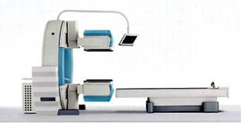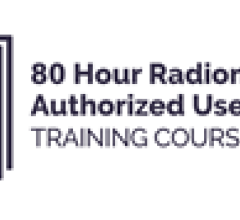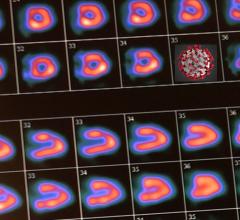
June 7, 2011 – At the Society of Nulear Medicine (SNM) 2011 meeting this week, Siemens Healthcare demonstrated how users of the Symbia S and Symbia T series, single-photon emission computed tomography (SPECT) and SPECT•CT systems, respectively, are taking advantage of IQ•SPECT, to dramatically reduce the length of imaging protocols. A field-upgradeable combination of hardware and software, IQ•SPECT is helping nuclear cardiologists cut the cardiac imaging protocol from approximately 20 minutes to less than five minutes. These shortened exams enable a sustainable approach to nuclear cardiology that potentially enables decreased radiation dose to patients, assists to make the procedure more tolerable for the elderly, provides high quality diagnostic information, and allows users to better utilize an imaging resource that is hampered by limited availability of the key radiotracer.
“There is a significant difference between a four-minute SPECT scan with IQ•SPECT and a conventional 20-minute SPECT because many older patients cannot tolerate a longer scan; in our practice IQ•SPECT provides the opportunity to obtain quality SPECT imaging information in cases where it would not have been possible to even attempt imaging,” said James R. Corbett, M.D., director, cardiovascular nuclear medicine, professor, departments of internal medicine and radiology, University Hospital, University of Michigan Health System, Ann Arbor.
In recognition of its market-differentiating features, Siemens recently received the Product Differentiation Excellence Award, Nuclear Cardiology, North America, 2011, from industry analyst group Frost & Sullivan.
“Despite the benefits to clinical decision making conferred by the modality, the cardiac SPECT market has been faced with challenging circumstances that have led to a significant shift in the traditional provider setting,” said Sangeetha Prabakar, industry analyst, Frost & Sullivan. “With IQ•SPECT, Siemens has delivered a solution that addresses the cost sensibilities engendered by decreased reimbursement and the relative scarcity of the radiotracer.”
IQ•SPECT brings enhanced value to patients, medical facilities, and cardiologists and is an ideal fit for hospital-based cardiology imaging needs. It has been shown to reduce radiotracer doses by up to 50 percent, thus translating into lower amounts of radiation for the patient, and potential increased cost savings and access to radiotracer supply for the medical facility.
IQ•SPECT utilizes SmartZoom collimators, which focus on the heart, collecting up to four times more counts than conventional, large-bore, parallel-hole collimators; cardio-centric orbit acquisition, which ensures that the heart is always in the SmartZoom collimator’s “sweet spot,” or magnification zone, as opposed to the gantry’s mechanical center; and, lastly, a proprietary 3-D reconstruction algorithm that models the position of each of the 48,000 collimator holes on each detector, allowing state-of-the-art distant-dependent isotropic (3-D) resolution recovery, CT-based attenuation correction (when using SPECT•CT), and energy window-based scatter correction.
For more information: www.siemens.com


 November 12, 2025
November 12, 2025 









